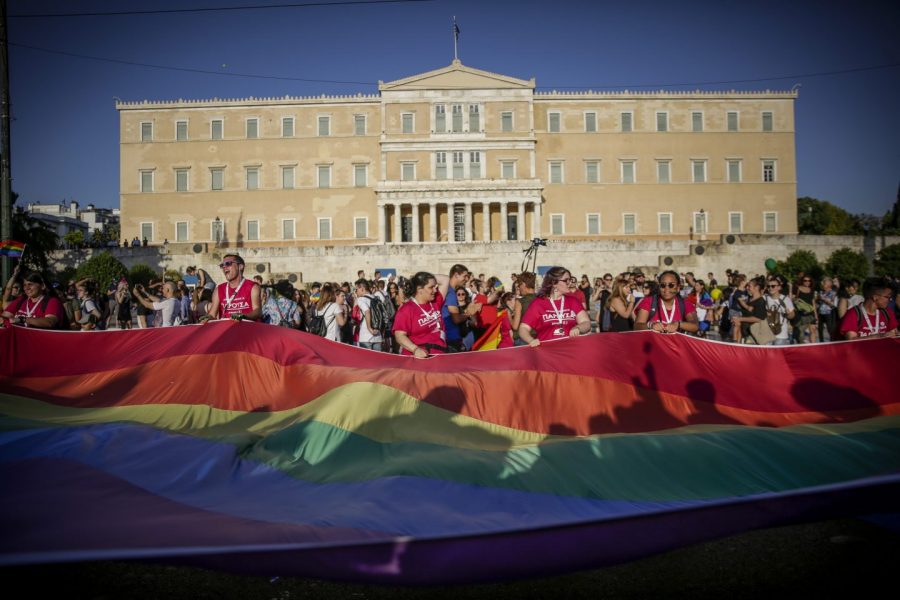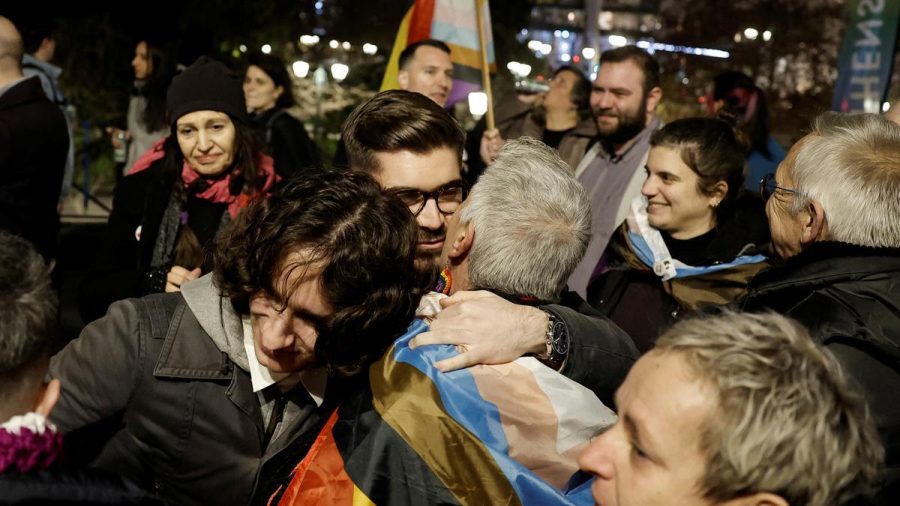Landmark Gay Marriage Law Passes in Greece Amid Protests and Cheers

The long-awaited legislation for gay marriage has finally been approved by the Greek Parliament, marking Greece as the first Christian Orthodox nation to do so. Prime Minister Kyriakos Mitsotakis, who promised to enact these measures after his decisive re-election last year, emphasized the importance of equal rights during cabinet discussions. He highlighted that over 30 other countries had similar laws in place, asserting the need to treat all citizens equally without discrimination.
The landmark bill not only legalizes same-sex marriage but also grants adoption rights and equal parental status to both partners, a departure from previous laws where only biological parents held such rights. Mitsotakis emphasized the practical implications for same-sex couples, such as facilitating daily activities involving their children. The bill passed with a significant majority in Parliament after intense debate. Greece is one of the first Orthodox Christian countries to allow such unions.
In addition to recognizing same-sex marriages, the legislation clears the way for adoption and gives the same rights to both same-sex parents as a child’s legal guardian, whereas to date such rights have applied only to the biological parent. It would also affect the daily lives of same-sex couples, Mr. Mitsotakis told Parliament on Thursday, allowing those with children “to collect them from school, to be able to travel with them, to take them to the doctor.”
“This is a historic moment,” Stella Belia, the head of same-sex parents group Rainbow Families, told Reuters. “This is a day of joy.” The bill was approved by 176 lawmakers in the 300-seat parliament and will become law when its published in the official government gazette. Although members of Prime Minister Kyriakos Mitsotakis’ centre-right New Democracy party abstained or voted against the bill, it gained enough support from the leftist opposition in a rare show of cross-party unity despite a tense debate.
Human rights advocates hailed the legislation as long overdue, emphasizing its importance in protecting the rights of same-sex couples and their children. However, the Greek Orthodox Church, represented by the Holy Synod, opposed the bill, arguing that it undermines traditional family structures and creates confusion for children. Some clerics vowed to resist the law’s implementation, and church groups collaborated with far-right parties to protest against the changes.

LGBTQ activists and supporters gather in front of the Greek parliament ahead of a vote on the bill which legalises same-sex marriage, in Athens [Louisa Gouliamaki/Reuters]
The bill passed with 176 votes for and 76 against in the 300-seat Parliament on Thursday after more than 30 hours of fiery debate over two days. Strong support from the center-left and leftist opposition parties pushed the measure through. (Of the 300 members of the body, a total of 254 people voted. Two of them voted present; the rest abstained.)
However, not everyone was happy with the decision. The Holy Synod, the Greek Orthodox Church’s highest authority, argued in a letter to lawmakers this month that the bill “abolishes fatherhood and motherhood, neutralizes the sexes” and creates an environment of confusion for children. Clerics echoed such sentiment in sermons across the country in recent weeks, and some bishops said they would refuse to baptize the children of same-sex couples. Church groups also joined forces with far-right parties to hold rallies in Athens and other cities to oppose the changes.
Despite limitations such as lack of access to assisted reproduction or surrogate pregnancies, the passage of the law is still seen as a historic milestone. Greece now stands as the first country in southeastern Europe to legalize same-sex marriage. Supporters celebrated the decision as a significant step towards equality and justice, even though challenges remain.On February 11th, hundreds of people staged a demonstration outside Parliament, with some holding banners that read, “There’s only one family, the traditional one.”













